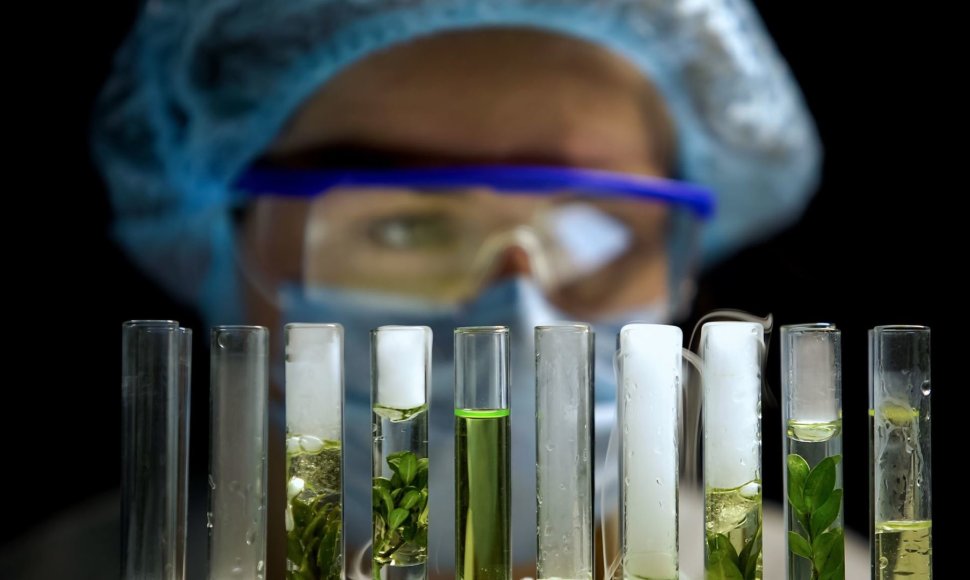Lithuania’s economy is moving towards developed European countries. However, our industry is still mainly focused on increasing production productivity and corporate profitability – there is lack of national strategy for implementation of circular economy. According to the Ecopreneur.eu study conducted in 2019, only 20% of Lithuanian businesses, which are dominated by small and medium-sized enterprises, reduce waste generated in production or service provision processes. Unsurprisingly, according to this resource optimization indicator, we are in the penultimate place among EU countries.
“For the most part, businesses do not yet appreciate the direct benefits of eco-investment. Today, raw materials and other production components make 40 to 60% of the total cost base of manufacturing companies in Lithuania, and this often creates unfavourable conditions to companies’ price competitiveness,” says Gabrielius Makuška, an expert for the Business Environment and Economics Department of the Lithuanian Confederation of Industrialists.
European countries, including Lithuania, currently import 60 percent of their fossil fuel and metal resources to meet production needs. As a result, the EU has identified 20 substances as being at risk for safe imports of raw materials.
“This dependence on global supply chains has become apparent in the presence of the COVID-19 virus. Meanwhile, in the circular economy scenario, consumption of raw materials is projected to decline by 32 percent in 2030 and by 53 percent by 2050,” explains Makuška.
Currently, among Lithuanian companies that implement sustainable solutions, the leadership belongs to the plastic processing businesses, in which circular production is the basis of business, and excellent results are a good example for foreign countries.
Other dominant companies in Lithuanian industry represent the wood processing, printing production, waste collection, treatment and disposal, metal, food, furniture, beverage production, quarrying sectors. Many of these businesses are focused on export markets, so it is especially important for them to increase their competitiveness and offer environmentally friendly technologies and products to the market. Transportation and storage services is another sector in Lithuania that also has a great potential to become eco-innovative.
“Creating circular economy is a holistic project, so, in order to preserve the competitiveness of Lithuanian business, it is necessary to create comprehensive conditions favorable to the implementation of these goals: from a predictable and reliable regulatory environment to a consistent innovation financing model. So far, we still lack this broader vision,” says the expert.
We can learn from Norway
Ina Sinkevičiūtė, the Head of the “Norway Grants“ program at the agency of Science Innovation and Technology (MITA), says that Norway can be a good example for Lithuania – this country has proven that sustainable thinking, injected in business culture and state strategy, helps the country's economy to grow and lead to the green economy leadership position.
“Norwegian companies are one of the largest exporters of green innovations in Europe and even in the world. Country’s businesses are focused on creation process; therefore, they can offer unique technological solutions for various sectors – from the shipping industry to food and essential products manufacturers,” says the specialist.
“Through various programs and organizations, Norway has created favorable environment to its businesses to create and implement innovations. Not only financial incentives are important here, but also good conditions for commercializing innovations. For example, Norwegians have created a virtual platform, “The Explorer“, where innovators from Norway can present their solutions to potential customers around the world and sell them. This channel opens opportunities for growth even for the smallest companies,” says I. Sinkevičiūtė.
Norway is also investing in other European countries in order to achieve sustainable economic and business growth in the region. Lithuania is no exception. MITA is currently implementing the “Norway Grants“ program, which will fund companies implementing green industry innovation (including bio-economy) projects. At the moment, a significant part of sustainable solutions in Lithuania’s industry is still in development stage, and this limits the wider implementation of circular economy. Programs like “Norway Grants“ help kick-start the process.
“Innovation process requires a lot of business effort and finance, but later, if we do the homework correctly, the innovation works for the business itself – increasing productivity and independence from raw material imports, enhancing cost control, and creating opportunities to sell innovations to other businesses,” says I. Sinkevičiūtė.












